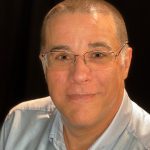Podcast: Download (16.7MB)
Subscribe: RSS
Mormon led his people; the end of Nephite civilization
(4 Nephi, Mormon 1–7)
by Mike Parker
(Mike Parker is a long-time FAIR member who has graciously allowed us to use materials he originally prepared for the Hurricane Utah Adult Religion Class. The scripture passages covered in his lessons don’t conform exactly to the Come, Follow Me reading schedule, so they will be shared here where they fit best.)
Additional Reading
-
The archaeological record of western New York is persuasive evidence that Book of Mormon peoples did not live in that region. The Cumorah of the Nephites (Mormon₂’s hill) and the Cumorah where Joseph Smith unearthed the gold plates (Moroni₂’s hill) are not the same hill. Dr. John E. Clark, professor of anthropology at BYU, explores this in his article “Archaeology and Cumorah Questions,” Journal of Book of Mormon Studies 13, no. 1–2 (2004): 144–51, 174.
-
In the second half of the nineteenth century, a legend about a cave in New York’s hill Cumorah began to appear in the writings and sermons of several Church leaders. This legend claimed that the hill contains a cave in which there were hundreds of different records written on plates; however, all of the accounts of this story are late and secondhand. See Cameron J. Packer’s article, “Cumorah’s Cave,” Journal of Book of Mormon Studies 13, no. 1–2 (2004): 50–57, 170–71.
-
The numbers of war dead described in the Book of Mormon are massive—so large, in fact, that it’s quite likely that Mormon₂ and Moroni₂ were purposely exaggerating. See Stephen Smoot, “Why the Book of Mormon’s Battle Numbers Don’t Add Up (And Why That’s Evidence for Its Authenticity),” Ploni Almoni (blog), 9 May 2016.
-
Is the hill near Manchester, New York, where Joseph Smith received the plates of Mormon the same hill where the final battles between the Nephites and Lamanites took place? Book of Mormon Central examines the evidence in KnoWhy #489.
 Mike Parker is a business and marketing analyst with over twenty years’ experience in the financial services and cellular telephone industries. He holds a bachelor’s degree in Business Administration with an emphasis in Management Information Systems from Dixie State University (now Utah Tech University) of St George, Utah. He also has eight years’ experience in corporate training and currently teaches an adult religion class in southern Utah. Mike and his wife, Denise, have three children.
Mike Parker is a business and marketing analyst with over twenty years’ experience in the financial services and cellular telephone industries. He holds a bachelor’s degree in Business Administration with an emphasis in Management Information Systems from Dixie State University (now Utah Tech University) of St George, Utah. He also has eight years’ experience in corporate training and currently teaches an adult religion class in southern Utah. Mike and his wife, Denise, have three children.
